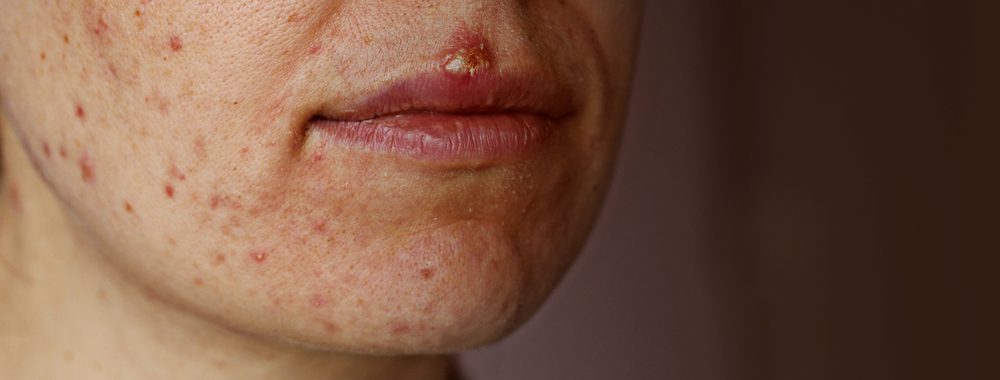Iodine Allergy
Iodine is not considered an allergy because it is very important for the thyroid process. But medications and some items that contain iodine can cause an allergy in anyone. Not sure if iodine use can cause allergies, but people call it “iodine allergy”.
Iodine is found in some foods, supplements, and medicines. This antiseptic solution used to cleanse the skin can also cause skin allergies. Adverse reactions to iodine or product containing iodine are rare throughout the body. But when these adverse reactions occur, they can be fatal.
Iodine is an essential human nutrient used in the production of thyroid hormones. There are also many medical uses for iodine. In chemical agents such as radiocontrast agents, Iodine is an ingredient. These are used for better X-ray image visibility and are on the rise.
Iodine Allergy Symptoms
Contact with products containing iodine can cause iodine allergy symptoms in a person.
- Feeling itchy on the body
- Hives
- Anaphylaxis (Swelling of the throat, tongue, and Shortness of breath)
Anaphylactic shock is the most dangerous form of anaphylaxis and can be life-threatening. In this case, the patient needs immediate medical attention or help.
Some symptoms of anaphylaxis include:
- Abdominal pain
- Lightheadedness
- Diarrhea
- Confusion
- Nausea or vomiting
- Altered level of consciousness
- Dizziness
- Hives
- Difficulty breathing
- Heart palpitations
- Rapid pulse
- Low blood pressure
Causes of Iodine Allergy
Certain solutions and iodine-containing food can be the cause an iodine allergy:
Povidone-iodine (Betadine). It is a common solution used in medical settings as a skin disinfectant. It can cause allergic reactions in people sensitive to iodine.
Iodinated contrast dye is an X-ray radiocontrast agent used for intravascular injections. This dye can also cause an iodine allergic reaction. In people, iodine-containing contrast dyes have been responsible for severe reactions (including deaths).
In case, if you are allergic to iodinated radiocontrast dyes. An allergist may give you systemic glucocorticoids before taking iodinated contrast. Or he may advise avoiding the use of iodinated contrast.
Foods that contain iodine, which is found in sea vegetables and animal protein foods. Some of them are shellfish, Seaweed, Dairy, Eggs, and Beef liver can also cause allergies.
Amiodarone (Cordarone Pacerone). It is a medication used to treat atrial fibrillation in heart patients and heart rhythm diseases. Experts know one case of cross-reactivity in a person who received amiodarone and iodine contrast.
Physicians should be careful when prescribing Amiodarone to people. Because it can cause unpleasant effects in people having problems with iodine-containing contrasts. However, the risk of a true allergic reaction to iodine is very rare.
Diagnosis and Treatment
Your doctor may ask you to have a patch test if you are allergic to povidone in iodine solution. In a patch test, an allergist applies a small amount of povidone-iodine to a patch and then places it on your skin. After a few days, he will check it again to see whether you have an allergic reaction or not.
When you are diagnosed with an iodine hypersensitivity reaction. Your doctor may prescribe medically reviewed oral corticosteroids such as prednisone. This medication can help you to relieve symptoms such as itching.
The doctor will advise you to stay away from food containing iodine. As well as you should avoid other things which can trigger a negative reaction. Anaphylactic shock is a condition that needs immediate medical advice and medical attention. Medical attention can be in the event of an epinephrine (adrenaline) shot.
Misconceptions
In shellfish allergy, sensitive people will react to certain proteins present in shellfish. In Shellfish, any marine creatures with shells can include. Some of them are:
- Crabs
- Shrimp
- Lobster
- Oysters
- Scallops
- Squid
- Octopus
Many people believe that if a person has a shellfish allergy he will be at risk of allergy to iodine. According to studies, there is no link between iodine allergy and allergy to fish. Experts denied this misconception that iodine is not an allergen.
A shellfish allergy patient is not reacting to the iodine used in medical practices.
Risk factors
If you are sensitive to mixtures that contain iodine, you should contact your doctor immediately for medical advice. Avoiding iodine completely could develop an iodine deficiency in a person. Iodine deficiency can cause thyroid goiter which is a serious health problem.
If you do not use iodine supplements and iodine-containing products. This can make you more sensitive which can increase your risk of iodine poisoning. These include the following thyroid conditions:
- Hashimoto’s thyroiditis
- Graves’ disease
- Goiters
Having a thyroidectomy, which removes most of your thyroid gland. This also makes you more sensitive to iodine and increases the risk of iodine poisoning.
Foods that are rich in iodine
Many foods contain a rich amount of specific nutrients. Same as some foods are rich in iodine. Some foods with a high content of iodine include:
- Dairy products
- Fish
- Sea vegetables, such as kelp, kombu, or seaweed
- Strawberries
- Cranberries
- Beans
- Potatoes







